
Avoid These Migraine Food Triggers
There’s possibly nothing worse than getting a migraine.
Well, that may be a bit of an exaggeration, but still – migraines are truly awful! They make you want to simply curl up in a dark room and not leave until sound and light stop causing you pain.
If you’ve suffered from migraines, you know that there can be all sorts of triggers. And truly, the scope of triggers is quite vast.
Now, there has been research which connects certain types of food with migraines. That means that you should at least reduce the amount of that food in your diet if you want to reduce the frequency and the intensity of your migraine attacks.
What Are Migraines?
Basically, migraines are extremely painful headaches, which can be accompanied by sensory sensitivity. Symptoms can vary from one person to another and can last anywhere from 4 to 72 hours, and sometimes even longer.
Some common symptoms of migraines include:
- Headache
- Disturbed vision
- Sensitivity to sensory information (i.e. to light, sound, smells)
- Nausea and/or vomiting
- Lightheadedness
However, migraines are usually also preceded and followed by other symptoms, so the impact of a single migraine attack can actually be quite long and debilitating. It can impact your everyday life to a significant extent, especially if you get them often.
Unfortunately, there is no medical cure for migraines currently. They are usually treated with other pain-relieving medication, or, in some cases, with preventive medication taken on a regular basis, which serves to reduce their severity or frequency.
However, there are things you yourself can do to prevent getting migraines. That may not completely eradicate your migraines, but it will certainly help significantly.
Migraine Triggers
Migraines are incredibly complex (they even used to be called complicated migraines). Even though there is plenty of research being done to see what causes them and to improve treatment, it seems that there is a long way to go still.
However, what most experts seem to agree on is that migraines are usually preceded by a specific trigger. The scope of triggers varies from one person to the next. While some triggers cause migraines in some people, they have no effect whatsoever on others, who are also suffering from migraines.
In any case, the scope of triggers is truly astounding. It involves things like hormonal changes, changes in sleep patterns, too much food, too little food, too much sleep, too little sleep, too much time in front of the computer, dehydration, and even the weekend.
Yes, even the weekend is a possible migraine trigger.
Many people suffer migraines due to the change in daily routine, which is why they experience a migraine at the weekend, when they should be relaxing.
Now that’s a pickle.
When it comes to food, there have been some studies that link certain types of food with the onset of migraines. However, because of its truly specific nature, scientists have been unable to find a common thread in all people who suffer from migraines.
That is why everyone should check their specific triggers. Here are some of the common food triggers that have been linked with causing migraines, which you might want to avoid. Now, this doesn’t mean you should stop consuming them completely. You simply need to control your cravings, and you’re on the right path.
Red Wine

We know, we know.
This one hits home! How else are we supposed to (politely) manage all those boring dinners without getting (politely) tipsy on wine?
Well, if you’re a wine aficionado, we simply don’t know what to tell you.
And it’s not the wine’s fault, per se. Sulfites, which are used in red wine as preservatives, are, sadly, on the list of foods that may trigger migraines.
Additionally, alcohol in general is a major trigger. While you drink it, alcohol increases the blood flow to your brain and that, as you may have guessed, is known to trigger migraines.
Also – hangovers are simply the worst.
Dehydration, which is a common side-effect of the good ol’ hangover, can also cause migraines or, at the very least, a headache.
So, it might be a good idea to quit…
…fooling around and simply reduce the amount of alcohol you drink.
As they say, moderation is key.
Coffee

Again, no need to completely quit coffee.
In fact, caffeine aids the absorption of many pain-relieving drugs.
However, if you’re used to several cups of coffee a day, when you don’t get the amount you’re used to, that’s when migraines appear.
Look into your daily consumption of caffeine, since it is not particularly healthy overall to drink too much of it. But, if you’re thinking about reducing the amount of coffee you drink, you have to do it gradually. So, no going cold turkey. Your body will not be happy.
According to most experts, daily intake of caffeine should be no more than 200 milligrams. The bad news is – it’s only one cup of coffee.
Chocolate
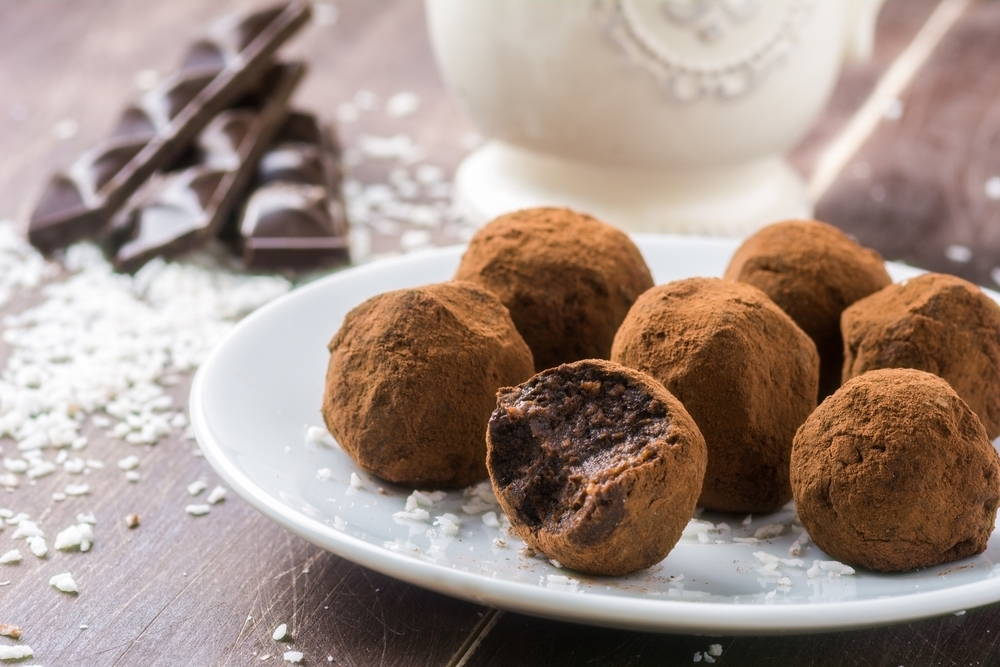
When it comes to chocolate, many people have also said that it triggers their migraines. However, the jury’s still out on chocolate – some people who suffer from migraine headaches claim that chocolate helps ease their headache.
A study conducted at the University of California, San Diego analyzed oral and stool samples and found that people who experience migraines after eating chocolate have higher levels of gut microbes that modify nitrates.
Now, chocolate is full of nitrates.
The bacteria in our gut modifies and then its waste product, nitrites, become nitric oxide in the blood.
Nitric oxide is usually great for many things, including circulation, but it’s not particularly great for people who experience migraines.
So, again, while chocolate itself is not too bad, having too much of it can lead to headaches.
Tyramine
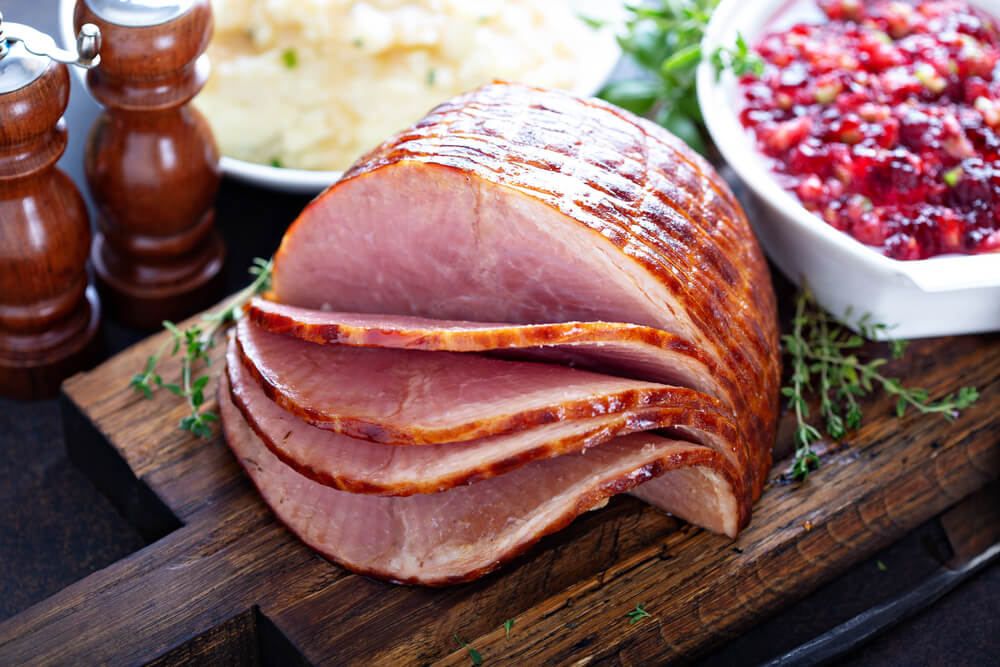
Yeah, we bet you’re thinking you’ve never had tyramine in your life.
But, you have, you definitely have.
Except in other, sneakier (and tastier) forms.
Tyramine can be found in aged foods, as well as fermented foods, such as:
- Cured meats
- Aged cheese
- Smoked fish
Tyramine is also found in some types of beer and even some fruits and veggies.
Food is more likely to have more tyramine if it is stored for long and if it isn’t kept in sufficiently cold environments.
An enzyme in the human body called monoamine oxidase (MAO) actually breaks down monoamines like tyramine. If you do not have enough of it in your system, it’s possible that you’ll get a migraine.
However, because it is such a complex issue, it’s still not completely clear how tyramine exactly triggers migraines.
Now, for some good news. There are actually types of meats and cheese which have higher and lower levels of tyramine. Here are some of them.
Meat/Poultry/Fish

When it comes to meat, you should avoid processed meat such as sausages, salami, as well as gravy (we know, this one’s hard for us, too). Another thing you should avoid is pickled fish, but we have a feeling not many people are dissatisfied with this one. However, this also includes smoked fish, so that might be a bit more difficult.
On the other hand, there is also meat which doesn’t have that much tyramine, such as fresh meat, fish, and poultry. Also, canned meats or fresh fish are also good for consumption and are not that likely to cause a migraine.
Cheese/Dairy
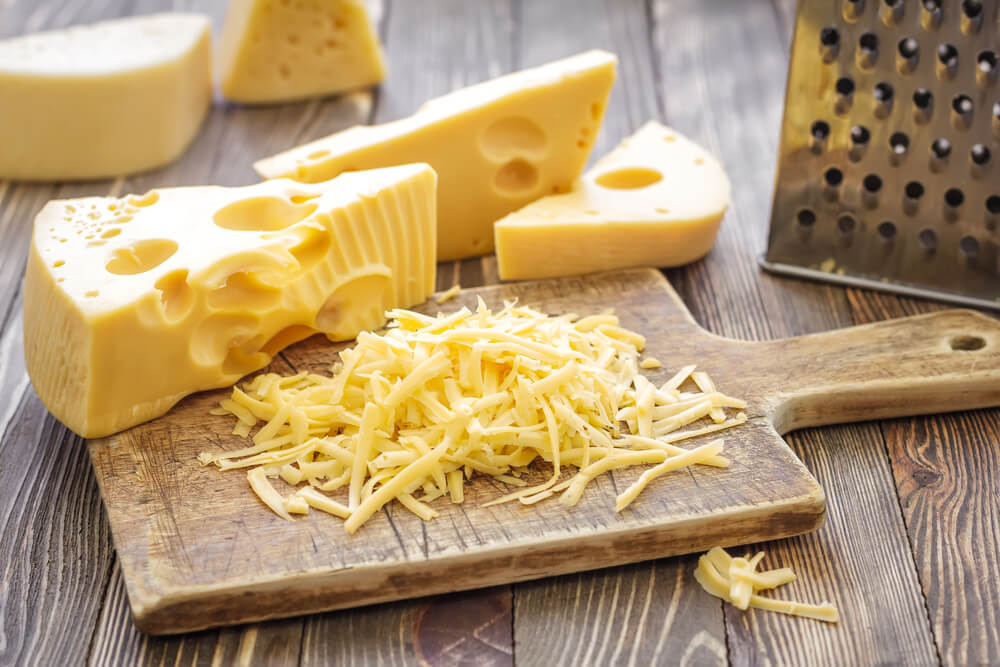
Unfortunately, some of the best types of cheese are really high in tyramine. These include all sorts of aged cheese, cheddar, blue cheese, Camembert, Swiss cheese, Parmesan, Stilton, and even feta.
This one’s sad as sad can be.
Seriously, how can you have pasta without Parmesan?
But, people with migraines have to cool it with the cheese.
On the other hand, types like cottage cheese, farmer’s cheese and even cream cheese are good. Also, yoghurt, fresh milk and sour cream are low in tyramine, so you can have them whenever you want.
Fruit/Vegetables
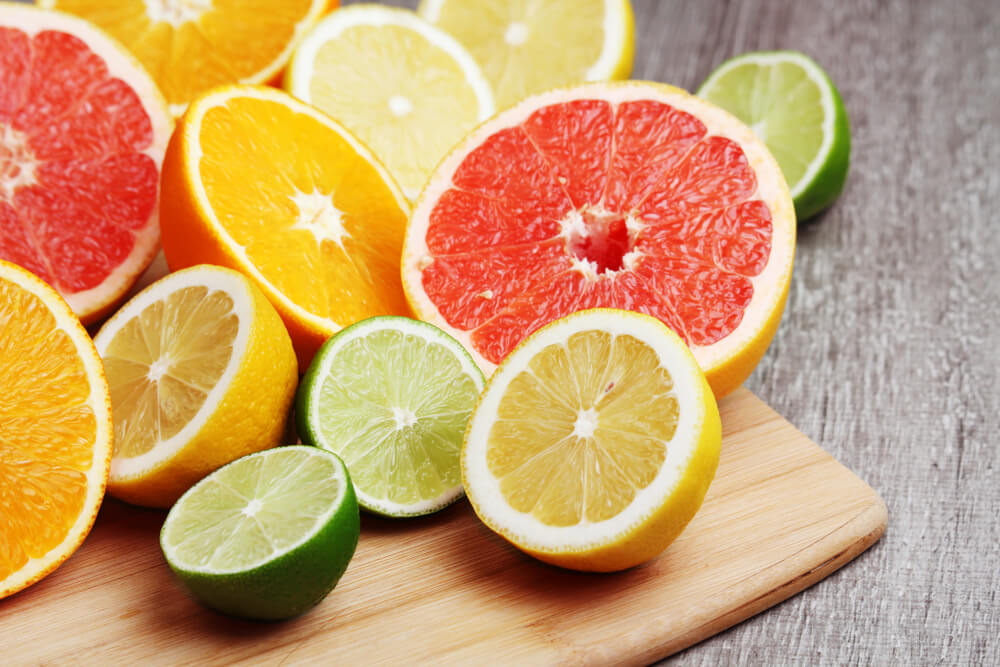
If you’re not a fan of sour fruit, then you won’t be too affected by this. Oranges, tangerines, grapefruit, lemons, limes and pineapple are higher in tyramine.
When it comes to vegetables, you might want to steer clear from beans and sauerkraut. Also, you should avoid fermented food. That doesn’t mean you should completely cut them out. It simply means that you might want to reduce the quantity. Fermented foods are otherwise incredibly healthy and they can have many other health benefits. However, if they trigger your migraines, you might want to cool it on the fermented food.
On the other hand, you can eat most vegetables – fresh, canned or frozen – and it is unlikely that they will cause any migraines.
How to Lower Tyramine in Food
Tyramine actually increases the longer food is held at room temperature. That is why you should store your food in the refrigerator.
When you thaw frozen foods, do it in the refrigerator or, if you have it, a microwave.
Another good tip for lowering tyramine is to cook or eat fresh meat or fish on the day you bought them. Otherwise, it’s best to freeze them.
Also, never ever eat something that has been kept in the fridge for more than a day.
Check Your Triggers
So, if you’re wondering whether food really can be a trigger for migraines, the short answer is – yes.
Your diet alone cannot cause migraines. It’s unlikely that you’ll always get migraines when eating certain food.
However, while there are types of food in general believed to be causing migraines, there is also food that specifically causes your migraine.
The best way to identify your triggers is to write a combined food/migraine diary. If you’re suffering from migraines, you already have a pretty good idea what may trigger yours. Migraines can occur a day after eating triggering food.
You should combine a food diary with a headache diary to see whether some foods cause headaches. Headaches themselves are not too bad. However, combined with other possible triggers, they may cause a full-blown migraine.
Then, the next step is to reduce the food that you’ve noticed has that effect on you. If you really like something, you don’t need to completely cut it out. But, it would be valuable for your overall health if you were to reduce it significantly.
There Are Beneficial Foods Too
Now that we’ve listed all the bad food, it’s time for a look on the other side. It has been proven that certain food is “pain-safe,” that is, it does not trigger any conditions.
Including, you might have guessed it – migraines.
Also, they are overall beneficial in reducing the frequency of your migraines and alleviating pain. The food and drinks that actually cannot trigger your migraines include:
- Rice (especially brown)
- Almost all vegetables
- Fruit (which was not listed above)
- Green tea, ginger tea
- Fish
- Chicken
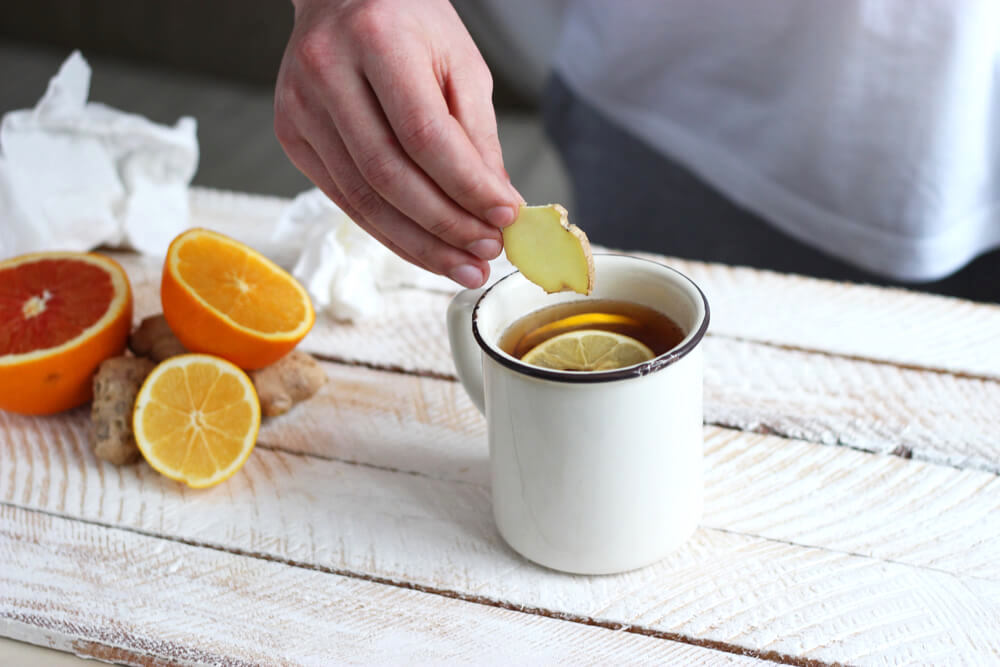
There has even been research to show that a plant-based diet can really benefit people who suffer from migraines. So, if you want to get rid of migraines, you know what to do!
(No, you don’t have to go vegan. Simply adjust your diet a bit and you’ll see an improvement in time.)
Home Remedies for Migraines
There are ways to also naturally reduce the intensity of migraines once you get them. While they may not completely cure your migraines, these are known for helping with the symptoms. There are also cures to treat headaches, and they also might alleviate your pain.
Here is what you should do when you get a migraine:
- Lie in a dark, quiet room. Due to sensory sensitivity, which can worsen your headache, it is recommended that you simply lie down in a room in which the blinds are drawn shut. If you live in a noisy part of the city, use earplugs to make sure the noise doesn’t bother you.

- Cool your head down. Experts believe that cooling the head reduces the blood flow to the brain, which might lower the pain you’re feeling. When you get a migraine, you should put an ice pack on your forehead or neck. Or, if that’s too cold for you, use a washcloth that has been put under cold water and drained. The only problem is that you will have to rinse it often because it can heat up quite fast.



